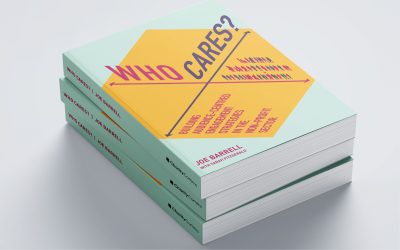
Tomorrow’s Donor, Today
How can you learn more about tomorrow’s donor and what motivates them?
Part 2 of the anticipated charity donor report delves deeper into what ‘doing good’ means for new generations, and unveils the changes needed to inspire their support.
Building on the first half of the research, launched at the end of 2023, Eden Stanley’s report, based on a survey of 3,000 respondents, is full of fresh insights to better understand tomorrow’s donor, today.
As a result of research, which asked people across the UK, on their engagement with charities, starting by understanding their values, and what motivates them to donate, or to not donate to causes, we’ve identified five ‘donortypes’:
- Protectors, who are motivated by causes which directly impact them or someone close to them
- Believers, who are moved to donate by a compelling need they’ve been shown and the belief their donation will make a tangible difference
- Pioneers, who see donating as a means of expressing their values or ethics and inspiring others
- Responders, who spring into action when they see a specific need in their community or in the event of an emergency
- Joiners, who donate as part of a social activity, to feel part of a group
Joe Barrell, principal and founder of Eden Stanley, said: “While market confidence is gradually returning to the charity sector, and donation levels are again on the rise, charities are relying on larger donations from fewer people, and struggling to engage younger groups – spelling danger on the horizon. That said, our data shows that since the pandemic, people have been more and more interested in collective action and playing their part in driving change. To grab hold of this opportunity and secure the future of fundraising, charities need to understand what moves specific audiences to action.
Charities who understand which donortypes they’re reaching, and who else they can inspire by tapping into a wider range of motivations, will be best placed to respond and survive in a challenging fundraising environment.
By changing the way the sector thinks about motivations, we’re giving charities the power to transform their fundraising.”
Get access to the full report and talk to us about how you can build audience engagement strategies to prepare for tomorrow’s donors.
—
More news
The inclusion illusion: Are we more progressive than we think?
The inclusion illusion: Are we more progressive than we think?
Read our book on audience-centred engagement strategies
In the midst of rapid social and political upheaval, charities and NGOs are facing new and unfamiliar challenges. We wrote the book on audience-centred engagement strategies.
Research Live article: Who really cares? The politics surrounding social causes
The research industry must help brands understand attitudes to social purpose if they are to engage with consumers, argues Joe Barrell.
Charities: Don’t Start with Why
When Simon Sinek published his 2009 book, ‘Start with Why’, his central premise was that people won’t truly buy into a product, service, or idea unless they understand the ‘why’ behind it.


